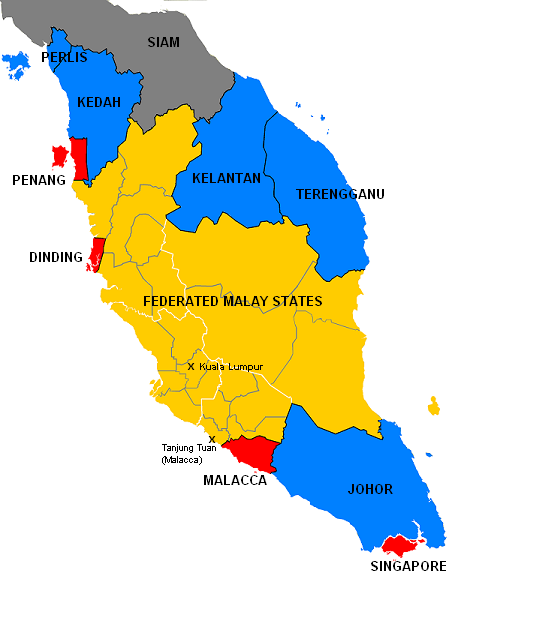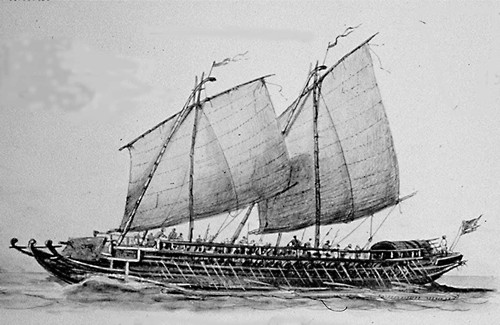Slavery In Malaysia on:
[Wikipedia]
[Google]
[Amazon]

 Chattel slavery existed in the area which was later to become Malaysia until it was abolished by the British in what was then the
Chattel slavery existed in the area which was later to become Malaysia until it was abolished by the British in what was then the
 Chattel slavery existed in the area which was later to become Malaysia until it was abolished by the British in what was then the
Chattel slavery existed in the area which was later to become Malaysia until it was abolished by the British in what was then the British Malaya
The term "British Malaya" (; ms, Tanah Melayu British) loosely describes a set of states on the Malay Peninsula and the island of Singapore that were brought under British hegemony or control between the late 18th and the mid-20th century. U ...
and British Borneo
British Borneo comprised the four northern parts of the island of Borneo, which are now the country of Brunei, two Malaysian states of Sabah and Sarawak, and the Malaysian federal territory of Labuan. During the British colonial rule before Worl ...
( Brunei, Sabah, Sarawak and Labuan) in 1915.
From the 14th-century onward the area consisted of Islamic sultanate states, which enslaved non-Muslims. In the 19th-century, the territory successively came under the control of the British Empire, which started a process to gradually abolish slavery and slave trade from the 1870s until the final abolition in 1915.
Background
Slavery in the territories of Malaysia are not well known until the arrival ofIslam
Islam (; ar, ۘالِإسلَام, , ) is an Abrahamic religions, Abrahamic Monotheism#Islam, monotheistic religion centred primarily around the Quran, a religious text considered by Muslims to be the direct word of God in Islam, God (or ...
in the 14th-century.
After the transformation of the area to Islamic sultanates and the conversion of the ruling elite to Islam in the 14th-century, slavery and slave trade came to follow Islamic law and take on the characteristics of slavery in the Muslim world, and more information are available about slavery in the Malay sultanates.
Slave trade
After conversion to Islam, the enslavement of Muslims were prohibited, which resulted in non-Muslims becoming targeted for enslavement by Muslim slave traders. Slaves were supplied to the Malay sultanates by five main methods; by slave raids against non-Muslim hill peoples ( bumiputra); by commercial slave traders who captured and sold non-Muslim people to both the Malay sultanates, the various states in Indonesia and the Philippines; by Muslim pilgrims who bought slaves during theirHajj
The Hajj (; ar, حَجّ '; sometimes also spelled Hadj, Hadji or Haj in English) is an annual Islamic pilgrimage to Mecca, Saudi Arabia, the holiest city for Muslims. Hajj is a mandatory religious duty for Muslims that must be carried ...
and sold them on their return; by criminals who chose to exchange their corporal punishment for enslavement; and debt bondage.
Slave market
I significant reason for the use of slave labor in Malaya was the low population density, which made free laborers insufficient. Except for slaves used for servant positions in the private households of rich people and for sexual slavery such as concubinage, slave laborers were used for a number of different roles, such as agricultural laborers as well as craftsmen. A British report from the 1880s described slavery in Pahang and customs of "unlimited corvee, ndthe right of the Sultan to force women and children into his harem, were all abusers that had to be taken on, but only gradually and with sufficient civil servants, polic and military on the ground".Abolition
In the 19th-century, the Malay sultanates gradually came under the control of the colonial British Empire. Britain abolished the British slave trade by the Slave Trade Act 1807 and slavery by the Slavery Abolition Act 1833. Officially the British pursued an abolitionist policy in all areas under their control after 1833, but in practice they avoided addressing the issue if they feared it could cause problems with local power holders, which was the case in Malaya, were the British for example avoided addressing the slave holding of the Sultan of Johor. From the 1870s, when the British felt their power was secure enough to introduce policies they felt would be unpopular, they actively started to pursue an abolitionist policy in Malaya, where slavery was progressively targeted and gradually abolished state by state. In 1875 the British forcibly introduced the abolition of slavery in Perak, and in 1887 they effectively undermined the institution of slavery in Pahang by providing slaves the same legal protection as free people. The British abolition policy met intense opposition. The British Resident J.W.W Birch of Preak was killed in 1875 after having assisted the escape of slaves from the Royal harem of the Sultan of Preak, and the British' introduction of legal protection for slaves in Pahang resulted in a rebellion in 1891–1894. The British colonial authorities finally declared slavery abolished in British Malaya in 1915.Bales, K. (2004). New Slavery: A Reference Handbook. Storbritannien: Bloomsbury Publishing. p. 60See also
*Slavery in Brunei
Chattel slavery was legal in the Sultanate of Brunei until the 20th-century.
Historically, non-Muslim slaves were provided to Brunei via purchase from merchants and pirates; via enslavement of non-Muslim captives during warfare; and by enslave ...
*Slavery in Indonesia
Chattel slavery existed in the territory that would become the modern state of Indonesia until the 20th century. Due to the fact that the Maritime South Asian archipelago corresponding to Indonesia was not unified until 1949, the history of s ...
* Human rights in Malaysia
* Human trafficking in Malaysia
*Sex trafficking in Malaysia
Sex trafficking in Malaysia is human trafficking for the purpose of sexual exploitation and slavery that occurs in Malaysia. Malaysia is a country of origin, destination and transit for sex trafficking.
Sex trafficking victims in the country ...
* History of slavery in the Muslim world
:*Slavery in the sultanates of Southeast Asia
The history of slavery in the Muslim world began with institutions inherited from pre-Islamic Arabia;Lewis 1994Ch.1 and the practice of keeping slaves subsequently developed in radically different ways, depending on social-political factors such ...
* History of concubinage in the Muslim world
References
* Mehmet Ozay, Ekrem Saltık, The Myth and Reality of Rukiye Hanim in the Context of Turkish Malay Relations (1864–1904). * {{Asia topic, Slavery in Malaysia Malaysia Islam and slavery Human rights abuses in Malaysia Anti-black racism in Asia Racism in Malaysia Social history of Malaysia British Malaya